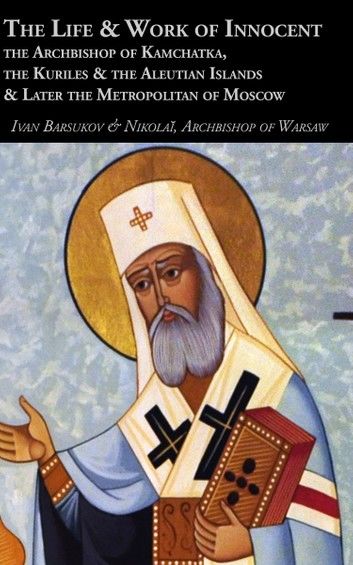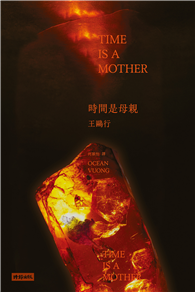| FindBook |
|
有 1 項符合
ivan barsukov的圖書 |
 |
$ 0 電子書 | The Life & Work of Innocent the Archbishop of Kamchatka, the Kuriles & the Aleutian Islands & Later the Metropolitan of Moscow
作者:Ivan Barsukov 出版社:CrossReach Publications 出版日期:2017-09-25 語言:英文  看圖書介紹 看圖書介紹
|
|
|
Innocentius, Archbishop of Kamchatka, the Kuriles and the Aleutian Islands, the ever memorable preacher of Christianity in the extreme East, was elevated to the vacant See of Moscow in 1867, on the demise of the celebrated Metropolitan Philaret. From the distant shores of the Amoor he went direct to the first capital city of Moscow—the heart of Russia.
The town of Anginskoe in the Government of Irkoutsk was the home of Innocentius. The register of the church in Anginskoe shows that “on the 26th of August (old style), 1797, the wife of the sacristan of the church of St. Elias the Prophet, Eusebius Popov, bore him a son who was named John.” At five years of age John Popov commenced to study his alphabet, being instructed by his father, who was at the time already afflicted with the disease which brought on his death two years later, leaving a widow and four orphans in extreme poverty. Fortunately the uncle of the orphans, a deacon of the same church, Demetrius Popov, in order to help the orphaned family somewhat, took the little boy John into his own home and continued teaching him. The little one learned so rapidly that in his eighth year he read the epistles in church and by his clear reading afforded much consolation to the parishioners. The mother of the boy, observing her son’s success, desired to obtain his father’s vacancy for him, in order to support the family; but this did not come to pass. At nine years of age John Popov was brought to Irkoutsk, where he was received as a scholar at the theological seminary.
At the seminary John surpassed all his schoolmates in learning. Tall of stature, with a good figure, and healthy; he was readily distinguished in their midst. At the time when John Popov entered the seminary, his uncle, with whom he previously lived, became a widower, and having taken the monastic vows with the name of David, he was transferred to Irkoutsk, making his home at the episcopal house, having also been ordained to the priesthood; and here, as before, he continued to care for his nephew, who often visited him. Father David was fond of mechanical labor; his nephew, coming to him, often found him at work on some machinery, and looking on assisted him, thus becoming very fond of the mechanical art himself.
At the seminary, during the time free of lessons, John always found occupation for himself; he would go somewhere apart from his schoolmates and read to himself, or else engage in building something. It was in this way he made in one of the rooms of the seminary a water-clock. The frame and wheels were made with a common knife and awl, the face was made of writing paper, the pointers of bits of wood. The water was poured into a pot of birch bark, and the dripping of it on a piece of tin beneath the pot sounded like the ticking of an ordinary clock; a bell sounded the hours. John’s fellow-pupils were very much amused by this.
|











